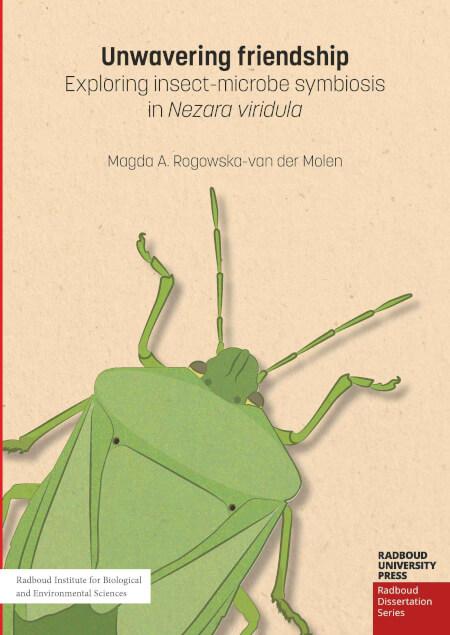Unwavering friendship: Exploring insect-microbe symbiosis in Nezara viridula
Keywords:
pest control, detoxifying symbiosis, host-microbe interaction, insect-microbe symbiosisSynopsis
Throughout evolution, insects have developed exceptional adaptive capabilities by forming symbiotic relationships with microbes, which are often crucial for their survival. Among shield bugs, such as the Southern green shield bug Nezara viridula, mutualistic interactions with bacteria are common and contribute significantly to the insect’s ecological success.
N. viridula is a piercing and sucking insect that relies on symbionts for nutrient supplementation. It is a highly invasive species with a broad dietary range across many plant families and its global spread results in significant agricultural losses. Recent studies showed that the shield bug microbiota can manipulate plant defences, affecting pest insect damage potential, however, the role of N. viridula microbiota remains unexplored. In this PhD thesis, the knowledge gaps in the insect-microbe symbiosis field were addressed and aimed to understand the role and relationship between N. viridula and its associated microbes.
Our research revealed that N. viridula has a simple and stable microbiota which participates in digestion, nutrient provision, detoxification and repression of plant toxins which is detrimental to the development of sustainable pest control strategies. This study laid a solid foundation for future research in the area of insect-microbe interactions and their application for agricultural practices and pest management.

Published
Series
Categories
License

This work is licensed under a Creative Commons Attribution-NonCommercial-NoDerivatives 4.0 International License.


